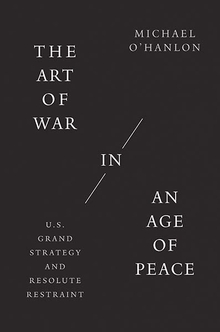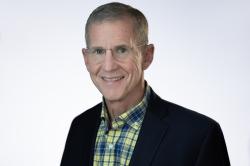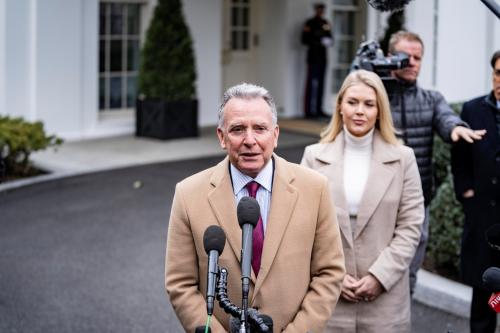Particularly at a time of heightened polarization, national service is an idea that should help unify our nation, write Stanley McChrystal and Michael O’Hanlon. This piece originally appeared on The Hill.
A proven technique in peace talks, labor disputes, and many other types of difficult negotiations is to begin by finding some type of common ground upon which antagonistic parties can agree. But in today’s political climate, everything seems difficult.
So why not seek the common ground of helping our young people benefit from the experience of service—service of a kind that changes almost everyone who does it for the better?
Presidential, congressional, state, and local officials should endorse the idea of at least a year of national service, not as a legal obligation, but as an increasingly widespread cultural, political, and moral expectation for all able, young Americans.
The fundamental purpose of such a program would not be to create jobs, or a low-wage pool of laborers for menial tasks. Rather, the main point would be to change the people who undertake it and thus the society in which they live.
The real product of national service, as much as the good work that participants carry out, is the group of alumni that it produces—individuals with increased maturity, civic awareness, and the empathy that comes from working with people from different backgrounds and different zip codes.
This is not a new idea. In recent presidential campaigns, some politicians have made nods in a related direction, as with Barack Obama‘s, “Yes, we can,” rallies, George W. Bush’s “compassionate conservatism,” or George H.W. Bush’s “thousand points of light.”
But it has been hard to translate such campaign sentiments into actionable policy. Arguably, not since the 1960s Peace Corps and VISTA programs has the federal government achieved major progress in the realm of national service.
Most of the action that has occurred since then has been driven by the private sector, nongovernmental organizations, and civic society, as with Wendy Kopp’s Teach for America program for recent college graduates.
All of that is well and good, but we need to bring national service up to scale and infuse it into our culture. As Representative Seth Moulton (D-MA) said in a recent speech at Brookings, we need to make national service so common that a young adult in a job interview should expect to be asked, “Where did you do your year of service?”
And employers throughout the land should be encouraged, when possible, to defer start dates for new hires until they finish their service.
The combined efforts of Teach for America, Peace Corps, various faith-based organizations, and other worthy groups now collectively involve a couple hundred thousand young Americans per year. There are also those already going into public service in professions like policing, first-responder communities, park and wildlife services and schools.
Add in the U.S. military, which recruits about 200,000 individuals annually, and, today, roughly 500,000 Americans annually undertake the kind of service we are promoting. That is a lot already, but it is out of a population of nearly 5 million at each age cohort in the United States.
By a very rough count, only about 10 percent of the population is doing some variant of national service. Roughly speaking, the near-term goal should be to double today’s national service ranks and reach the goal of 1 million individuals early in the 2020s.
Some might worry that such a government-sponsored effort would take jobs from those adults who really need them. This is a manageable risk—especially when national unemployment rates are so low. Many useful jobs that are not currently being done by anyone could be created as part of a new effort.
For example, mentoring and tutoring services for struggling poor Americans who cannot afford to hire their own after-school tutors could be provided. Outreach groups to visit the nation’s nursing homes and Veterans Affairs hospitals could be organized.
Teams to clean up distressed neighborhoods could take the “broken windows” philosophy of community policing one step further, giving crime-plagued and poverty-stricken areas more reason to be proud of where they live.
The Peace Corps could be expanded back to the size that typified it in the 1960s. Having more people who have profited from such experiences can be a competitive advantage for our nation in a complex, global economy.
This concept can be good for our country in other ways, too, including its national security. Right now, we have a remarkable all-volunteer military. It would remain an all-volunteer force under our proposal. But something big would change, we hope.
Today, only about 0.5 percent of all Americans are in the military at any given time, and fewer than 10 percent of all Americans are veterans of previous military service. Worse, the pool of young Americans from which the armed forces can recruit is dwindling.
Relatively few Americans have a proclivity to join the military; relatively few of those who are interested meet its standards. The armed forces are still doing reasonably well with recruiting, but there are sometimes shortfalls.
Moreover, military service is increasingly something that only certain categories of Americans—those from the mountain West and deep South, for example, or those with parents in the military—tend to seriously consider.
The Army gets 50 percent of its enlisted recruits from 10 percent of the nation’s high schools. That trend cannot be good for our nation. A culture of national service would not grow the military or require the armed forces to take people they don’t want, but it should increase and diversify the pool of applicants willing to consider a tour in the armed forces as one among many options for national service.
National service is an idea that should help unify our nation. It builds on the best traditions in America, imposes only very modest costs on the federal government and asks Americans to give back at a time when most of the Washington debate is having no such edifying effect on our nation’s citizenry.
According to the Service Alliance’s latest polling, 60 to 70 percent of Americans would support this idea, and one in four would consider serving themselves.
When one of us speaks across the nation to groups interested in national service, the response tends to be overwhelmingly positive. Yet, we as a nation seem hesitant to take on this kind of challenge. If we believe it would make our country better and stronger, then what are we waiting for? If we don’t take on the task, who will?
The Brookings Institution is committed to quality, independence, and impact.
We are supported by a diverse array of funders. In line with our values and policies, each Brookings publication represents the sole views of its author(s).







Commentary
How a focus on national service can unify our divided country
March 5, 2019